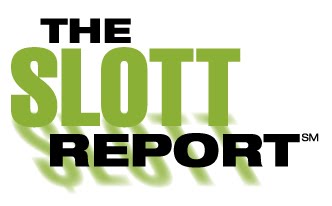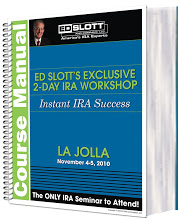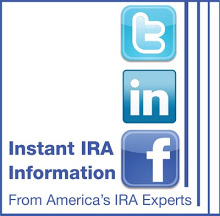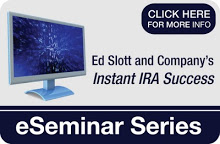This week's Slott Report Mailbag discusses some complex, timely issues involving the myths about Roth conversions and the ability to stretch the tax paid on a Roth Conversion over three years. Can that be done?. As always, we stress the importance of working with a competent, educated financial advisor to keep your retirement nest egg safe and secure.
1.
Dear Mr. Slott and Company,
There have been various articles (the Kiplinger’s 7 Myths About Roth IRA Conversions, Nov. 2010 for example), offering advice on spreading the tax bill over three years if tax payers are married and filing a joint return. I called the IRS office seeking answers on this specific point. The answer given to me was a resounding NO (per publication 590) unless we file a separate return.
Ed, what is the truth in this? Please advice.
Thank you very much.
Sincerely,
Andre Jan
Answer:
For all 2010 conversions you have the option of using one of two methods for reporting the taxable portion of a Roth IRA conversion. The default method is to include the taxable amount 1/2 on your 2011 return and the other 1/2 on your 2012 return. If you want to pay all the income tax in 2010, you must elect this option. The election will be on IRS Form 8606 (they have not issued the final version of the form for 2010 yet). Form 8606 is a form that is filed by the individual, not filed jointly. If you and your wife both have IRAs and are both converting to Roth IRAs the rule is as follows: you can choose one method but all your conversions will have to use the same method. Your wife can make the same choice or it may be different than yours because she files a separate Form 8606, and all her conversions in 2010 would have to use the same method. So you could end up with the income from your conversions being split over 2011 and 2012 and the income from your wife’s conversions being included in income for 2010.
2.
I have a Roth IRA with maximum contribution of $6,000.00 this year. I also have a 401(k) with a former employer. I retired @ age 55 (age 60 now). What should I do with the 401(k)?
Judy
Answer:
You have several options to consider:
1. you can leave it in your company 401(k) plan
2. do a trustee to trustee transfer to an IRA rollover
3. you can do a transfer from the plan to a Roth IRA (a Roth conversion)
4. take a lump sum taxable distribution.
If you own any employer securities in your 401(k) plan there is a special tax provision you can use by taking the shares of your employer stock out if the current market value is much higher than the cost of when it was purchased in the plan.
Keeping your funds in the 401(k) plan or rolling them over to an IRA will not cause an income tax event and will allow your funds to continue to grow tax deferred. Taking a lump sum in cash or doing a Roth conversion will be an income tax event. The special tax provision mentioned above will only apply to distributions from a qualified plan and not from IRAs. It is generally a good idea to consider an IRA rollover. You should however consult your tax and or financial advisor on this important decision.
3.
Quoting from your article on The CPA Journal website, 2008:
Rollovers from Roth 401(k)s to Roth IRAs. The five-year holding period is never carried over to an individual Roth IRA. The Roth 401(k) funds will be governed by the five-year rule applicable to the Roth IRA. If the Roth IRA has already satisfied the five-year period, then the employer funds are deemed to have also met the five-year period, even if they were in the Roth 401(k) for only a year. This is just one more reason for qualifying individuals to establish a Roth IRA. If they don’t qualify now, they will qualify in 2010, when the restrictions on converting to a Roth IRA are lifted and taxpayers can establish Roth IRAs by doing conversions.
I need to be absolutely sure that the 5-year rule does not apply to rollovers. If I were to establish a Roth 401(k) this year, then roll some or all of the account, including contributions, to my Roth IRA which is 8 years old, I would 1.) Not be in violation of any rules regarding the 401(k) and 2.) Have satisfied ANY 5 year requirement by having used my oldest Roth account.
If you have supporting documentation to this effect, I would appreciate it. My adviser just told me that the opposite is true. "Too bad, so sad - 5 year requirement on ALL distributions, including rollovers."
Thank you for your help in this regard.
Mike McDermott
Answer:
If you have a Roth 401(k) as part of your company’s 401(k) plan, the five year rule as mentioned in the CPA Journal is correct. Here’s a partial rundown of how the Roth 401(k) five year rule works. Keep in mind that you have to be eligible to take a distribution from the plan in order to move the Roth 401(k) funds.
Distribution - you must hold the Roth 401(k) for five years and be age 59 ½ to have a qualified distribution (no tax, no penalty).
Rollover to another Roth 401(k) - will generally use the five year period in the new Roth 401(k) (depends on whether 60 day or direct rollover is done).
Rollover to Roth IRA - will use the five year period of the Roth IRA. If you have an existing Roth IRA and you roll your Roth 401(k) into it, the five year period would be from the start date (actually January 1 of that year) of when that Roth IRA was established.
By IRA Technical Consultant Marvin Rotenberg and Jared Trexler
------------------------------------------------------------------------------
Comment, Question, Discussion Topic on your mind? Click on the Blue Comment Link below and leave your thoughts then check back to see what other consumers and advisors think.
*Copyright 2010 Ed Slott and Company, LLC
Friday, November 5, 2010
Roth Conversions and Stretching The Tax in Mailbag
Subscribe to:
Post Comments (Atom)














0 comments:
Post a Comment